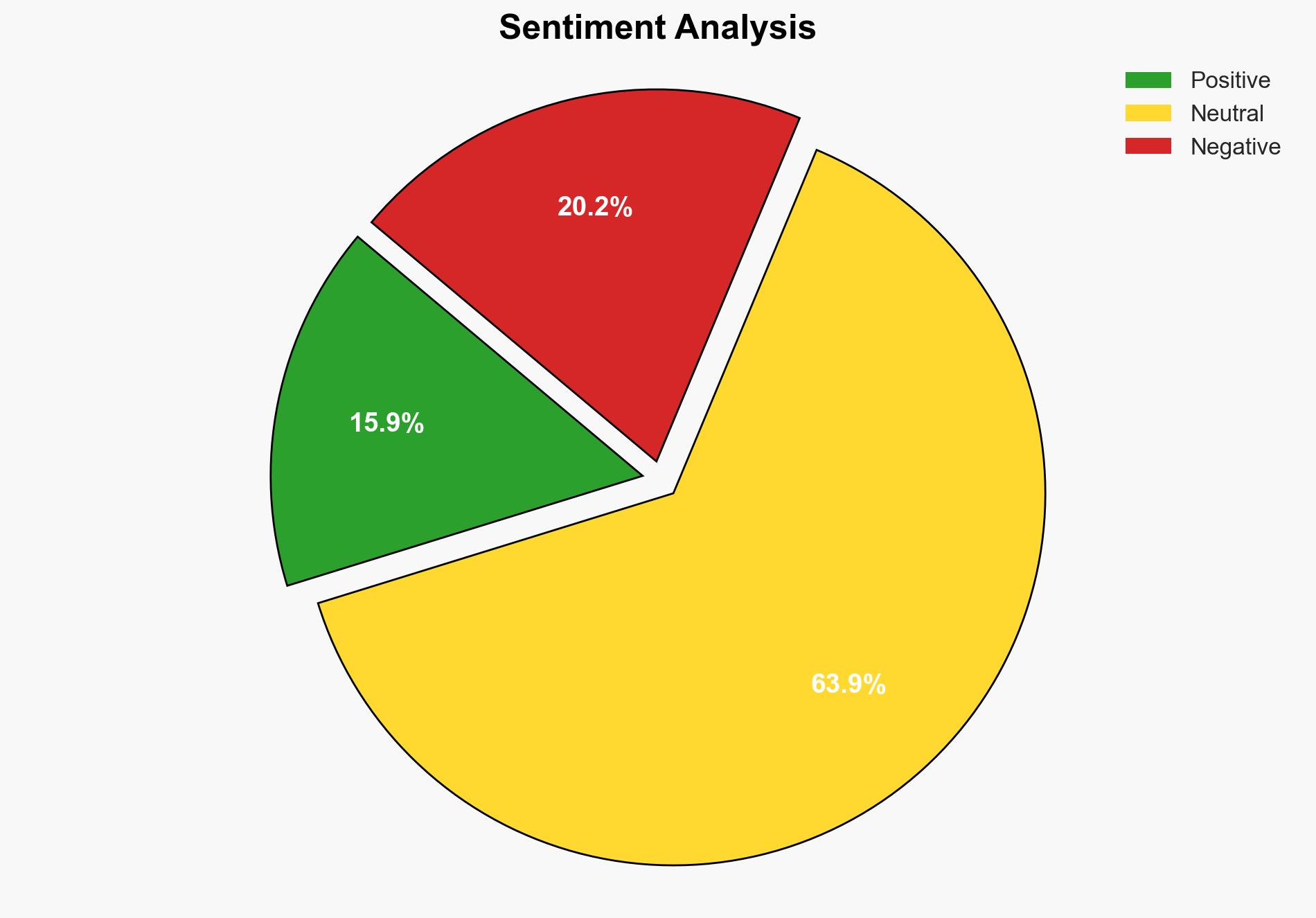EU Foreign Affairs Chief Slams Rise Of The ‘Rule Of Force’ – International Business Times
Published on: 2025-03-11
Intelligence Report: EU Foreign Affairs Chief Slams Rise Of The ‘Rule Of Force’ – International Business Times
1. BLUF (Bottom Line Up Front)
The EU foreign affairs chief has criticized the increasing trend of using force over international law, particularly in the context of Russia’s invasion of Ukraine. This stance was articulated during a United Nations Security Council meeting, highlighting the EU’s commitment to international law and human rights. The ongoing conflict in Ukraine remains a critical focus, with calls for Russia to withdraw its troops. The situation in Gaza and other regions also demands attention, with humanitarian concerns being emphasized.
2. Detailed Analysis
The following structured analytic techniques have been applied for this analysis:
General Analysis
The EU’s position underscores a broader geopolitical tension between adherence to international law and the use of force. The EU’s call for respect for international law is juxtaposed against Russia’s narrative, which accuses the EU of being an aggressive and russophobic entity. This dichotomy reflects a deepening divide in international relations, with significant implications for global governance structures.
3. Implications and Strategic Risks
The rise of the ‘rule of force’ presents significant risks to regional stability, particularly in Eastern Europe and the Middle East. The potential for escalation in Ukraine remains high, with broader implications for NATO and EU security policies. Economic interests are also at risk, as sanctions and geopolitical tensions could impact global markets. The humanitarian situation in Gaza and other conflict zones may exacerbate regional instability, with potential spillover effects.
4. Recommendations and Outlook
Recommendations:
- Enhance diplomatic efforts to mediate conflicts and reinforce international law adherence.
- Strengthen sanctions and economic measures to deter aggressive actions by state actors.
- Increase humanitarian aid and support to conflict-affected regions to mitigate human rights violations.
Outlook:
Best-case scenario: Diplomatic resolutions lead to de-escalation in Ukraine and improved adherence to international law globally.
Worst-case scenario: Continued use of force leads to further regional conflicts and destabilization, impacting global security and economies.
Most likely outcome: Ongoing tensions with periodic escalations, requiring sustained international diplomatic and economic interventions.
5. Key Individuals and Entities
The report mentions significant individuals and organizations but does not provide any roles or affiliations. Key individuals include Kaja Kallas and Vassily Nebenzia. The European Union and United Nations are central entities in the discussed events.




